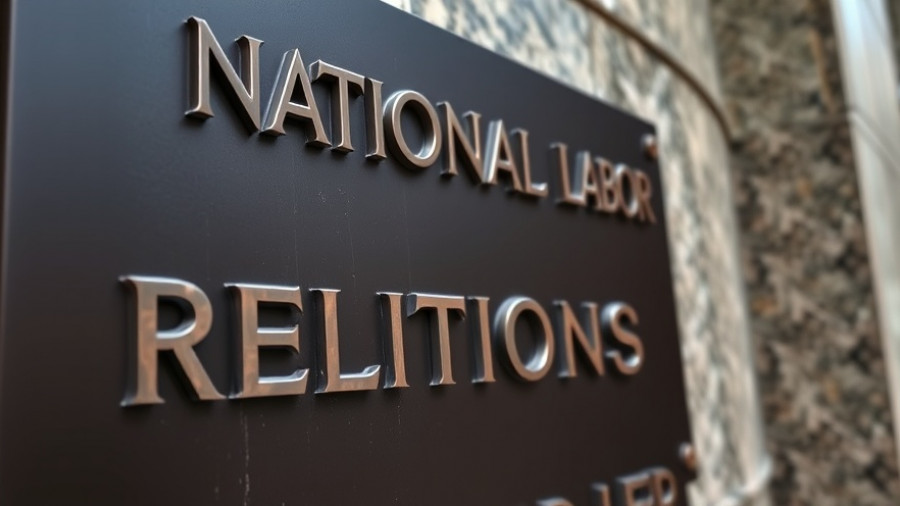
The Legal Battle Over Labor Rights in California
In a significant move that could reshape the landscape of labor rights, the National Labor Relations Board (NLRB) has filed a lawsuit against California over Assembly Bill 288. Signed into law by Governor Gavin Newsom, this legislation allows the California Public Employment Relations Board to intervene in private-sector labor disputes if the federal NLRB is unable to respond. This law, seen as a response to the perceived inaction of federal regulators under the Trump administration, is now at the heart of a heated legal confrontation.
Understanding Assembly Bill 288
AB 288 became effective on January 1 and gives workers the right to petition the state labor board to take over cases if the NLRB fails to act. This includes handling union elections and addressing complaints of workplace retaliation. Proponents argue that this law is necessary to fill a crucial gap in labor rights enforcement, particularly given the paralysis of the NLRB, which has been unable to functionally operate due to a lack of quorum since January 2025.
California labor leaders herald this law as transformative, with Lorena Gonzalez, the president of the California Federation of Labor, describing AB 288 as “the most significant labor law reform in nearly a century.” However, the NLRB contends that state intervention undermines the federal labor structure, arguing that AB 288 creates a conflicting regulatory system.
The Implications of Dual Authority
Historically, labor law has been governed primarily at the federal level, establishing a uniform framework for unionization and workers’ rights. The NLRB lawsuit insists that California’s move encroaches upon these federal powers, creating situations where state and federal boards could issue conflicting rulings. This not only confuses the rights of workers but also complicates compliance for employers.
Experts argue that the ongoing legal conflict over AB 288 highlights a significant tension in modern labor relations. With states stepping in to protect workers when federal entities are stalled, the fundamental question remains: can states effectively enforce labor rights when the federal framework is in disarray?
Precedents and Legal Context
The NLRB is not alone in its opposition to AB 288. Similar legislative efforts in other states have faced swift backlash from federal authorities. For example, New York recently passed a law that expanded its labor board’s powers, only to be met with an NLRB lawsuit shortly thereafter. This pattern signals a broader strategy among states to act on labor rights, especially at times when federal action is perceived to be ineffective.
Notably, a historical precedent exists where the Supreme Court ruled that state labor boards cannot assert authority over labor disputes under federal jurisdiction. This decision implies that California’s assertive approach may be constitutionally challenged, particularly under the National Labor Relations Act (NLRA).
What Does This Mean for Workers?
The legal dispute raises critical questions for workers in California and beyond. If AB 288 is deemed unconstitutional, many private-sector employees who rely on the state board's assistance could find themselves without recourse. Conversely, should the law withstand scrutiny, it may set a precedent for other states considering similar measures.
The outcome of this lawsuit can have profound implications. It will shape not only how labor rights are enforced at both state and federal levels but also define the boundaries of regulatory power among various governing agencies. This case represents a pivotal moment for labor advocacy groups who are increasingly concerned about the erosion of worker protections during periods of federal inactivity.
Moving Forward: A Call for Action
As the legal battle unfolds, it remains crucial for workers to stay informed and engaged with their rights. Understanding the implications of legislation like AB 288 can empower individuals to advocate for their rights more effectively. Whether you’re a union member or a private employee, being aware of the changes in labor law can make a significant difference in your workplace experience.
With the NLRB vowing to challenge any state actions that it deems overreaching, a nuanced conversation about workers’ rights and protections is more important than ever. Advocacy efforts at both the grassroots and governmental levels will determine the future landscape of labor rights in California and the broader United States.
 Add Row
Add Row  Add
Add 



Write A Comment